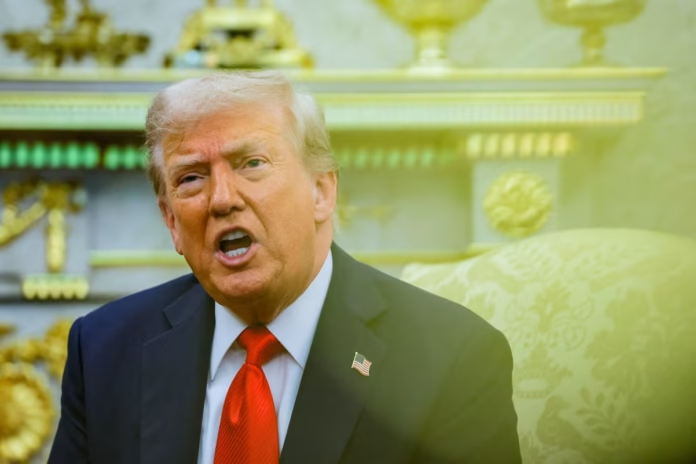WASHINGTON: Former US President Donald Trump and Russian President Vladimir Putin appear to have found common ground once again, this time pointing fingers at Europe as the Ukraine peace process continues to falter.
Three weeks after their highly publicized yet low-yield summit in Alaska, both leaders are casting Europe as the stumbling block to progress.
Trump pressed European allies in a call on Thursday, urging them to intensify sanctions and halt energy imports from Russia, even though much of the diplomatic movement toward peace is being driven by European governments themselves.
The White House said Trump underscored that Europe must stop purchasing Russian oil, sales that netted Moscow €1.1 billion from the EU in a single year.
He also demanded that Europe increase economic pressure on China, accusing Beijing of helping bankroll Putin’s war.
However, critics note the contradiction in Trump’s stance, as he has avoided imposing direct sanctions on China amid ongoing trade talks.
Ukrainian President Volodymyr Zelensky, who joined the call alongside European leaders, emphasized the need to deprive Russia’s war machine of money.
Yet Trump’s rhetoric leaned more toward chastising Europe than confronting Moscow.
The strategy reflects his broader foreign policy approach, which has already strained relations with India after Washington slapped a 50% tariff on Indian exports over its Russian oil purchases.
The move pushed India closer to China and Russia, with Prime Minister Narendra Modi recently engaging both leaders on the sidelines of global summits.
Meanwhile, Europe has already reduced its reliance on Russian energy, with oil imports plunging from $16.4 billion in 2021 to just $1.72 billion in early 2025. Still, Russia continues exploiting divisions among NATO allies.
Putin, during a recent meeting in Beijing, accused Europeans of “hysteria” over Moscow’s intentions and dismissed claims of GPS jamming against EU officials as “fake paranoia.”
The stalemate leaves Zelensky waiting for a direct meeting with Putin, which has yet to materialize despite Trump’s earlier promises.
While France and 25 other nations pledged to contribute troops to a possible peacekeeping force, progress hinges on a Trump-led initiative that has shown little traction.
As frustration mounts, Trump faces a choice: deepen his role in Ukraine diplomacy or allow Putin to dictate the pace.
For now, both men seem content to hold Europe accountable for a war neither has shown real urgency to end.



